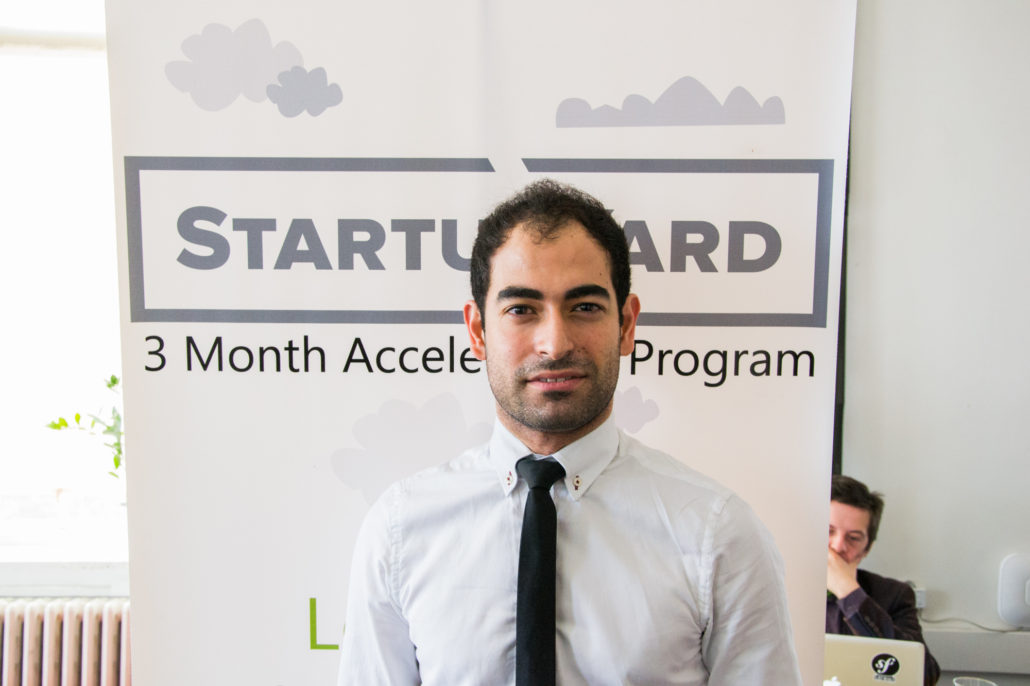What’s Special about the Bulgarian Tech Ecosystem?
StartupYard has embarked on a month-long, 8 stop tour of Central European tech capitals. We’ve already visited Slovakia, Poland, and Kosovo, and Hungary, and will be stoping in Romania (Bucharest and Cluj), Bulgaria, and Slovenia.
But before visiting each ecosystem for StartupYard FastLane, we wanted to get to know the ecosystems we will be visiting even better. While we’ve met a lot of startups from these countries, and accelerated some of them as well, we wanted to hear from local accelerators, investors, and entrepreneurs what they thought was special about their local ecosystem. Since we’re asking startupers to come to Prague, which we think is pretty special, we wanted to see what our neighboring ecosystems really have to offer, according to some of their biggest fans.
We asked a group of entrepreneurs and influencers in the countries we’re visiting to tell us their perspective on their own ecosystem, and we will share that learning with you in a series of blog posts, including posts about Poland, Bucharest, and Slovakia, we’ll explore what makes the Bulgarian Tech Ecosystem unique, ahead of our visit to CoWorking Space by Puzl, in Sofia, on Wednesday September 14th.
What’s Special about the Bulgarian Tech Ecosystem?
 Alexander Karadjian, Founder and CEO of Speedifly
Alexander Karadjian, Founder and CEO of Speedifly
Born and raised in Bulgaria, Alexander Karadjian moved to the US at the age of 19. He received his Bachelor’s and Master’s degrees in architecture from Harvard and went on to work at some of world’s leading architectural offices such as OMA and Studio Rafael Moneo. Alexander’s passion for travel and his adventurous nature led him to found SpeediFly, the first social travel platform for spontaneous last-minute travel, and a StartupYard Alum. A visionary and a believer, he is optimistic that SpeediFly will redefine the way young people think about travel and will inspire people go out and explore the world. Speedifly raised over 300,000 euros, from private investors and StartupYard. In addition to traveling, Alexander enjoys drawing, fishing and playing tennis in his free time.
What do you see as the greatest advantage of your tech ecosystem, particularly for young technology startups and entrepreneurs?
There is no doubt that the greatest asset of the Bulgarian Tech Ecosystem is the access to talent and the relatively low price (in comparison to the rest of Europe and the US) at which entrepreneurs can gain access to this talent. It is impossible to think of a thriving technology startup environment where there is a noticeable shortage of developers. In Bulgaria there are plenty of extremely talented developers, and the local economy is actually adjusting to the growing need for more specialists in this field – new IT academies pop up in Sofia every year. The challenge for startups, of course, is that big corporations from the US and Western Europe outsource a lot of their IT work to Bulgaria, which especially during the last couple of years, makes it more difficult for startup founders to make competitive enough offers to the top developers available in the ecosystem.
Alex Karadjian of @speedifly: outsourcing to Bulgaria a challenge for local startups seeking talent. Share on X
What about its most important current weaknesses? How would you like to see them addressed?
Well, the greatest weakness, I believe, is the access to smart money. There are a lot of very rich people in Bulgaria who indeed want to invest their money, but they do not have the necessary experience to add much more than the money to the startups they can potentially invest in. It is simple – there are almost no people in Bulgaria who have done this “startup thing” successfully in the past so as to provide guidance to entrepreneurs. Most of the Bulgarians who have this experience stay in San Francisco, New York or London. Incubators such as LAUNCHub and Eleven try to bring such people to the ecosystem, but it’s not easy. This is a process that will take a lot of time. And to be honest, for startup founders who work on their first businesses it’s extremely difficult to be competitive without adequate mentorship.
Alex Karadjian of @speedifly: Biggest challenge to #Bulgarian #Startups is access to smart money, and mentorship Share on X
What speciality would you say your ecosystem is most famous for, in terms of technology or business?
I would say that the development of games is thriving in Sofia. I do not follow this branch so closely but I talk to so many people who turn out to be developing games – it’s crazy. These kinds of startups are usually not under the spotlight, but some of them are doing really well.
Would you say the local ecosystem is dominated by more copycats, or by original, innovative solutions?
Well, “copycat” sounds quite offensive, which is why I do not want to use this word, but at the same time, having studied and lived in the US, I cannot say that our ecosystem is a birthplace of significant innovative solutions.
Let’s face the reality, having great ideas and a lot of developers in the same place is not enough. Most of the local founders don’t have the necessary academic background to even imagine what real technological innovation means – if I have to abide to my definition of word innovation, of course. If one goes to Y Combinator, one can see startups building new types of airplanes – this is unimaginable in a country like Bulgaria. Yes, there are Bulgarians studying engineering and physics at MIT, Harvard and Stanford, but those people do not come back to our ecosystem. Let’s not forget that in the early 2000’s the US was investing something like 17 times more money in research and technology that all the countries in Europe together. The consequences are quite clear, I think.
Alex Karadjian of @speedifly: Bulgaria needs its best minds to come home. Share on X
What would you say your locally grown entrepreneurs are best at? What is their greatest strength in international business?
I have never thought about this. Maybe they are best at building beautiful solutions, and by beautiful I mean visually compelling. If only they were as good at sales!
Alex Karadjian of @speedifly: Bulgarian startups build visually compelling products Share on X
In your opinion, does the local ecosystem look abroad for opportunities enough? Too much? What would you encourage local entrepreneurs to change in their approach to global business?
I don’t think local entrepreneurs are open enough to embrace global opportunities and this is indeed a problem because the Bulgarian market is too small not only to capitalize on, but also to be used as a test ground. Some B2C products can be tested locally, but most of them, as well as all new B2B solutions, should be tested against much bigger markets. Only then can our local entrepreneurs adequately evaluate the potential and the weaknesses of their products.
What does your ecosystem offer that others can’t? What is your local “killer feature?”
Corporate tax is 10%! And as I said before, cheap access to top-shelf talent is still a big advantage.
How would you describe your government’s relationship to startups and tech? Is the government helpful or is it out of touch?
At this point the government is indifferent, which is not too bad. I say this because in Bulgaria many politicians have “invaded” local small and medium sized businesses using political power. Fortunately, technological startups are too complicated for them – there’s no easy money there, which is most probably what keeps them away from negatively interfering with the startup ecosystem.
Alex Karadjian of @speedifly: Bulgarian gov is hands-off with #startups and that's a good thing Share on X
What about Angel investors? Do you have an active community? What types of people are doing angel investing in your ecosystem?
Yes, there is an active Angel investor community in Sofia. Actually, I recently heard that a guy in Sofia is making an Angel investment platform to facilitate the presentation of pre-screened startups to this community of Angels. This opportunity to bring angels and startup founders close together is vital for our ecosystem, as most of the angels in Bulgaria don’t have prior experience with startups. They usually come from the financial industry, from the construction industry or from various business related to reselling goods/building materials.
In your opinion, what have been your greatest local successes, and in what areas do you think the ecosystem has the most potential to grow in the next few years?
Telerik was without any doubt the biggest success story in Bulgaria. In 2014 this company offering software tools for web, mobile and desktop application development was sold for $262.5M to Progress Software, which made the acquisition one of the biggest deals ever in Central and Southeastern Europe. Two years later, it still appears that the greatest potential of the local ecosystem is related to offering tools for the development of various IT platforms.
What would you say to an entrepreneur or a startup thinking about relocating to your city? Any Warnings? Hidden advantages? Quirks?
Be careful with the freelancers – you cannot really rely on many of them. And mess with the local institutions as little as possible. The legal system is still a mess, which is the major obstacle to bringing more investments to Sofia.
Can you highlight any startups to watch for 2017 from your local ecosystem? Why would you highlight them?
I would follow with great interest the Peer2Peer investment platform iUVO group. It provides investors with the opportunity to invest in diversified portfolios and respectively brings something really fresh to the market. I would be very curious to see how they grow.



